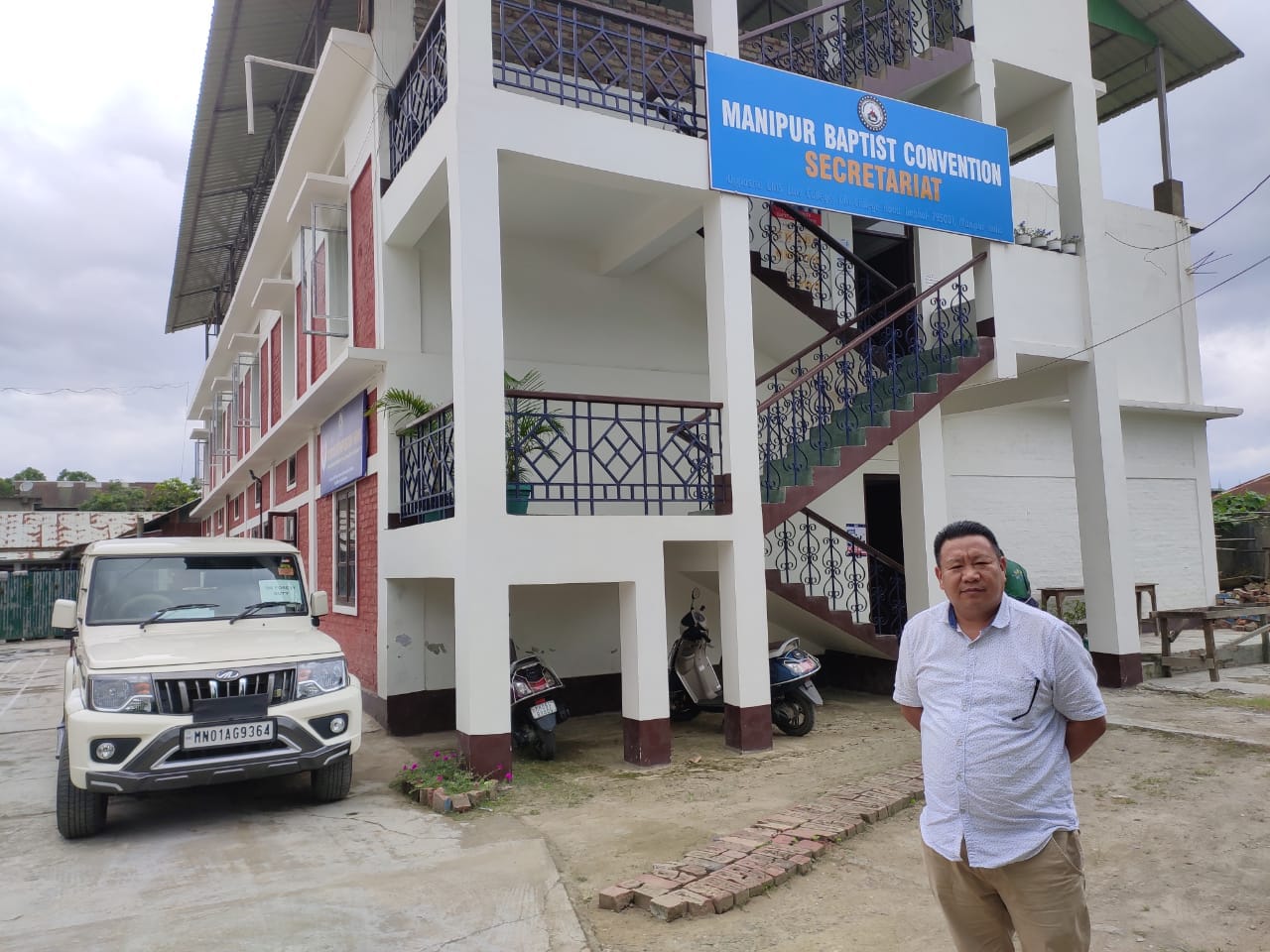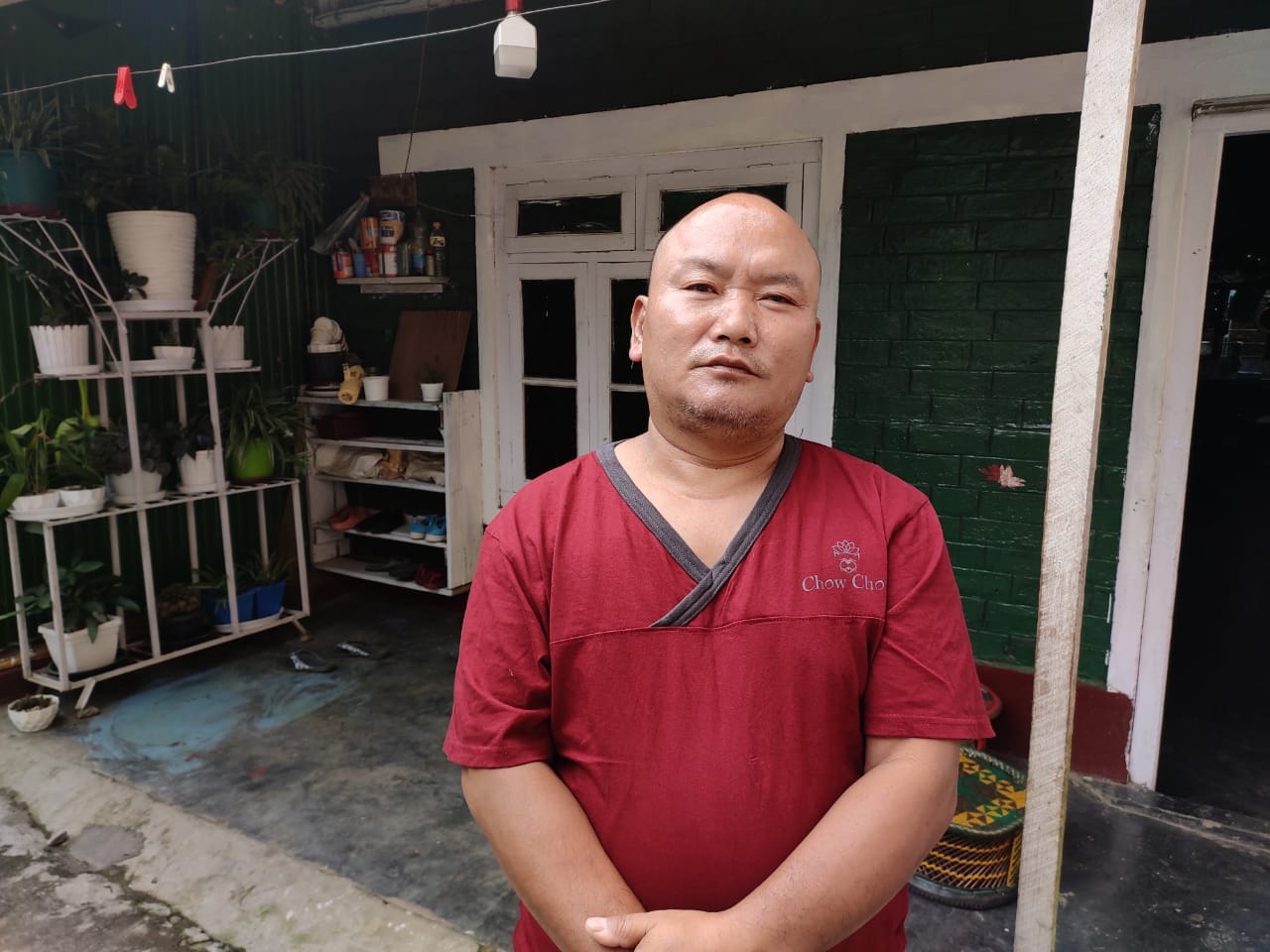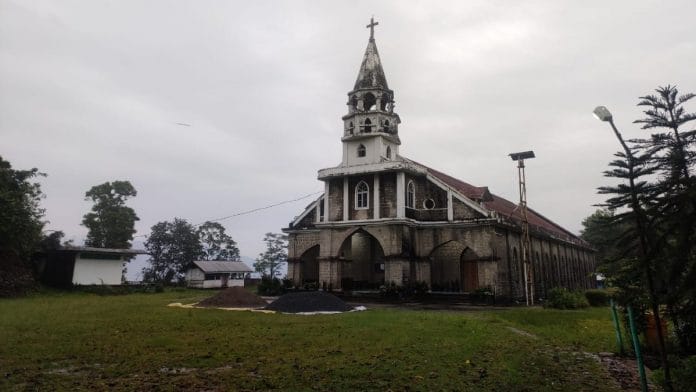Imphal: From the plains to the hills, anti-vaccine propaganda flows freely from the phones of nearly every person in Manipur. In one video, a young man conducting a Facebook Live tells the world, in Manipuri, “There still isn’t a cure for cancer, so how can they make a vaccine so quickly? Just exercise and stay positive. There’s no need for a vaccine.”
Another message claims the vaccine will lead to death within two years of taking the shot. Others say the vaccine will weaken the body’s immune response to other pathogens, or that it will cause metallic objects to stick to the site of the injection (a rumour that also caught on in some western nations).
This misinformation has left the state government battling widespread vaccine hesitancy that seems to have taken a toll on its immunisation drive.
Manipur has a population of 27.2 lakh (2011 Census), of which only 2.4 per cent was fully vaccinated as of Friday, with 19.3 per cent having taken the first dose.
“Manipur is a small state. When a rumour goes around, everyone catches on to it and it’s hard to shake,” said an official with the health department who did not wish to be named.
While the government has had some success administering the vaccines in the plains, misinformation appears to have taken deeper root in the state’s hill districts — rural areas dominated by followers of Christianity. This has added to other factors — the rugged terrain of the hill districts, the difficulty one faces reaching and travelling through them, and a critical lack of infrastructure, including fewer vaccination centres — to result in much lower vaccination numbers than those of the plains.
In the hills, for example, the district of Noney has administered 8,511 first doses (as of Friday), followed by Pherzawl with 6,635 doses, Kamjong with 4,833, and Tamenglong with 10,294. In contrast, in the plains, Imphal East has administered 1,35,249 first doses, Imphal West 1,64,005, Bishnupur 49,165, and Churachandpur 56,749.
“There is a lot of hesitancy within the community (Christians). There are all kinds of rumours on YouTube and messages on WhatsApp, but it’s also their own interpretation of the religious texts,” Reverend S. Prim Vaiphei, president of the All Manipur Christian Organisation (AMCO), told ThePrint.
“There is an idea that the vaccine is related to Satan, or that it will lead to death.”
The church associations of Manipur, many of which are headquartered in Imphal, are making an effort to mobilise the Christian community and encourage members to come forward and get vaccinated. That means addressing the hesitation of church leaders in remote areas, too, they say.
“Even our leaders have some misconceptions (about the vaccine). We have suggested to the government to have some kind of sensitisation programme so everyone’s doubts can be cleared. They have agreed to do this with us. After that, we will use our networks to disseminate the information,” said Reverend T. Karang Maram, publicity secretary of the AMCO and Director, Peace & Development of the Manipur Baptist Convention.

Also Read: Media spreading misinformation on Covid, I recovered with paracetamol & antibiotic, KCR says
Manipur’s powerful churches
The Christian community, which forms about 40 per cent of the state’s population, closely behind Hindus at 41 per cent, commands an intricate network of churches across the state.
Manipur’s history is rife with conflict between its various ethnic and tribal groups. Its landscape is dominated by the Meiteis, most of whom are Hindu and live in the plains, and the Kuki-Chin and Naga tribes that predominantly occupy the hills (the former closer to the Mizo border and the latter closer to the Nagaland border).
The All Manipur Christian Organisation — an association of all denominations across ethnicities formed in 1987 — comes forward in times of crisis to advocate, lobby, and assist the government.
Each denomination of Christianity, such as the Baptists, Catholics, and Presbyterians, have their own associations with hundreds — sometimes thousands — of churches under them. This network stretches far and wide across the state.
“In the recent past, churches in Manipur have felt the need to voice together their stand and their concerns in times of political turmoil and crisis in the state,” theological scholar L.H. Nimreila Siang wrote in an essay on church unity, published by the Oxford Centre for Mission Studies in 2016.
“Churches have played important roles in negotiating peace in society. For instance, in the Kuki-Naga conflict (1992-95), the church negotiated with both parties to stop the killings and the burning down of houses. The churches also organised a pulpit exchange service programme so that church members would forget the trauma created by the conflict,” she wrote.
The fear about vaccines gripping Christians in the hill districts is another opportunity for the churches to step in and help, several leaders told ThePrint, especially because some of the fear comes from misconceptions related to the Bible.
A common belief is that the vaccine is the “mark of the Beast”, or Satan, brandished upon unbelievers.
This line of thinking is ascribed by proponents to the Book of Revelations, chapter 13:17, which says, “so that they could not buy or sell unless they had the mark, which is the name of the beast or the number of its name”.
“We have been praying for a solution and now that we have a vaccine, people are sceptical and think it is the mark of the beast. Our pastors have been telling them it simply isn’t true,” said Pastor L. Thangkolet with the Kuki Christian Church.

The Archdiocese of Imphal has set up a Covid-19 task force at all its 52 schools and parishes across the state.
“We’ve submitted a list of 100 nurses and doctors associated with our churches, so that the state government can contact them when they go for vaccination drives. We’ve sent a circular to all our churches and parishes to encourage people to get vaccinated,” said Reverend Father Biju Lakose, head of the archdiocese’s Covid task force.
The Manipur Baptist Association — the largest Christian association in terms of membership — will be holding an orientation session with the state government on 3 July to address any misconceptions within its own leadership. This information will then be passed on to members of each church.
The larger church associations also blame “independent” preachers, who do not follow any denomination, for spreading misleading information about the vaccines. Videos and articles dismissing the shots, by some American preachers, are also doing the rounds.
Two independent churches ThePrint reached said they neither endorsed nor renounced the vaccine.
“North East India Baptist Missions does not have a position relating to Covid-19 vaccination. We believe this to be a matter of personal choice, and neither advise people to accept the vaccination, nor decline the vaccination,” Jim Colyn, an American who serves as director of the independent mission, wrote to ThePrint over email. Their church, Colyn said, has a following of 5,000 online.
Pastor Mano Oinam, who runs the “International Ministry of Reconciliation Church” with over 2,000 YouTube subscribers and an average of 200 views per video, said, “When people come to me with doubts about the vaccine, I don’t tell them what to do, but tell them to pray and believe till they find clarity themselves.”
Also Read: Social media has been indispensable during Covid, but it is a double-edged sword
The state government’s intervention
Chief Minister N. Biren Singh has repeatedly expressed dismay over the low rates of vaccination in the state. On 2 June, he held a meeting with government officials and religious leaders to discuss ways to improve the Covid-19 situation. The religious leaders subsequently vowed to hold mass prayers, and spread awareness about Covid-19 among tribal residents of the hills.
“We held several meetings with Christian and Muslim leaders separately, who were initially difficult to convince. It has taken a long time, but the Christian community appears to be responding now,” Dr N. Shyamjai Singh, director of the National Health Mission in Manipur told ThePrint.
“We will orient them on the present situation, warn them about the dangers of the Delta variant, and correct any misconceptions they have on the vaccine’s efficacy.”
Since Monday, Manipur’s total vaccinations have jumped from an average of 5,000 to 6,000 doses to nearly 15,000. A source in the health department said this jump happened after the chief minister “put pressure” on the department in a meeting on 25 June. District magistrates were given targets and asked to submit daily vaccination coverage figures.
Even so, this rise in vaccinations has been largely on account of the plains districts, which were already performing well. For example, according to CoWin data updated Friday, Imphal East (with 26 vaccination sites) administered 4,703 doses in a day, while the number was 7,249 for Imphal West (37), 2,809 for Bishnupur (10) and 1,226 for Churachandpur (9).
Meanwhile, two doses were given out in Kamjong (1), 246 in Tamenglong (4), 57 in Pherzawl (2), and 285 in Noney (4), on the same day.
While the hill districts are lagging, Dr Shyamjai is confident the gap will be filled in the coming weeks.
“Apart from getting in touch with the churches, MLAs have been asked to conduct vaccination drives in their own assembly constituencies. District magistrates in the hilly areas, where people cannot always access the healthcare centres, have started a mobile vaccination service which will target a few villages a day,” he told ThePrint.
(Edited by Sunanda Ranjan)
Also Read: YouTube to counter misinformation about Covid with new videos






